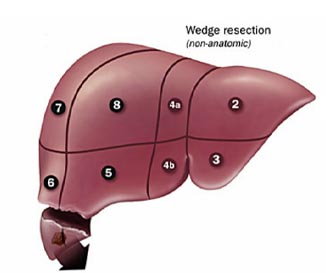Liver Resection For Benign Lesions
There are two kinds of lesions – Benign and Malignant. Benign lesions are considered noncancerous while malignant lesions are cancerous. Let’s get acquainted with the concept of the ‘Liver resections for benign lesions’:
Are partial hepatectomies also considered to treat benign lesions?
Partial hepatectomies can also be done for certain indications in benign lesions. The most common indications are:
- Live donor liver procedure
- Complex hydatid disease
- Bile leaks
- Post liver trauma
- Complex bile ducts
- Vascular injury
- Certain varieties of the choledochal cysts
- Peecoma of the liver
- Large haemangiomas of the liver
Which approach is required for liver cancers?
The multimodal approach is used for the treatment of liver cancers. It starts with good care in the primary and secondary care centre whereas disease signs have been picked up early and radiological staging is adequately done before proceeding to intervention. The majority of our patients with obstructive jaundice have had CBD stents placed outside without staging imaging. This sometimes makes it challenging to stage the patient preoperatively.
Do all liver cancer patients have to undergo a biopsy?
All patients do not need a biopsy. In resectable lesions wherever possible biopsy should be avoided till they have been seen in the tertiary care centre.
How does composite planning take place?
Patients may need downstaging or bridge with TACE, TAE or portal vein embolisation and a composite plan can be made with discussions between the following:
- Liver Surgeon
- Radiologist
- Interventional radiologist
- Hepatologist
- Gastroenterologist
- Oncologist
Why do we lay a strong emphasis on psychologist and dietician reviews?
As we all know that the liver cancer patients and their families need strong emotional support, so we know the value of the psychologist and dietitian reviews in this regard. Dedicated teams are required to take the family and the patient through this difficult journey.
Which factors are considered while determining the specific approach for treatment?
Surgery is planned and tailored to each patient rather than one size fits all approach. Following factors are considered in this regard:
- Size of the lesions
- Total number of the lesions
- Location of the lesions
- Status of background liver quality
- The volume of the liver
- Inflow & outflow anatomy of an individual patient
How long does the patient stay in the hospital?
On average the patient stays in the hospital for a week to 10 days and requires 2 to 3 weeks recuperation at home.
Do we recognize the value of follow up?
Ideally, we want to be able to follow up with our patients for up to 5-year post-op. The majority of our patients are lost to follow up as they move back to the secondary and primary care teams for follow up care.
What do our doctors want to say about liver resectional surgery?
According to Dr H.R.S Girn, Liver resection surgery is safe and has evolved over the past five to six decades to its present stage of low risk with excellent outcomes when done by an experienced hand in centres who can support the infrastructural and human resource requirements for these complex procedures.
Why should you count on us for liver cancer surgery?
As 90% practise of Dr H.R.S Girn primarily involves liver cancer surgery and over the last couple of years have succeeded in evolving our unit into a high volume live resection centre wherein we do approximately 40 to 50 liver cancer surgeries.
Getting in Touch is easy
Fill out our enquiry form, we will get back you shortly.

